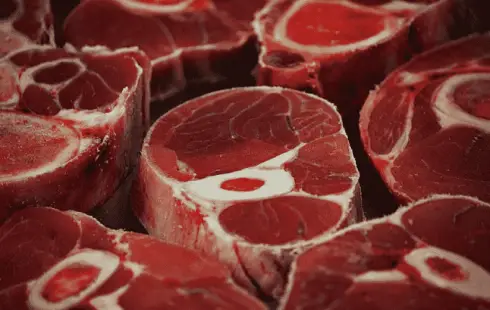Krypto-Rallye verpasst? So entdeckst du vielversprechende Altcoins rechtzeitig
Section: Arts
 Meat production in Germany fell sharply last year. Commercial slaughterhouses produced 7.0 million tons of meat, according to the Federal Statistical Office in Wiesbaden on Wednesday. That was a good eight percent or 0.6 million tons less than in 2021.
Meat production in Germany fell sharply last year. Commercial slaughterhouses produced 7.0 million tons of meat, according to the Federal Statistical Office in Wiesbaden on Wednesday. That was a good eight percent or 0.6 million tons less than in 2021.
Meat production in this country has thus declined every year since the record year of 2016 (8.3 million tons), "but never as much as in 2022," the statisticians said. Slaughterhouses slaughtered a total of 51.2 million pigs, cattle, sheep, goats and horses, and 701.4 million chickens, turkeys and ducks.
With 47 million animals slaughtered, the number of pigs killed fell particularly sharply by 9.2 percent - a decrease of 4.8 million animals. Overall, slaughter companies produced around 4.5 million metric tons of pork, almost ten percent less than in the previous year. In the medium term, the decline is even more pronounced: measured against 2016, almost one-fifth less pork was produced. One reason for this was falling pig stocks in Germany, it said.
In 2022, the number of pigs kept in Germany had fallen to its lowest level since reunification in 1990. Consumption of pork in this country has been declining for years. In addition, the increased costs of energy, fertilizers and feed are causing problems for many farms.
The number of cattle slaughtered also fell sharply by 7.8 percent to just under 3.0 million animals, according to the 2022 statistics. As a result, the volume slaughtered fell 8.2 percent from the previous year to 985,000 tons of beef. The amount of poultry meat produced declined less sharply. It fell by 2.9 percent to a good 1.5 million metric tons.
Image by Uwe Ruhrmann
Section: Arts

Section: Business

Section: Arts

Section: Arts

Section: Business

Section: Business

Section: Arts

Section: Health

Section: Arts

Section: News
Health Insurance in Germany is compulsory and sometimes complicated, not to mention expensive. As an expat, you are required to navigate this landscape within weeks of arriving, so check our FAQ on PKV. For our guide on resources and access to agents who can give you a competitive quote, try our PKV Cost comparison tool.
Germany is famous for its medical expertise and extensive number of hospitals and clinics. See this comprehensive directory of hospitals and clinics across the country, complete with links to their websites, addresses, contact info, and specializations/services.
Join us for the 10th Summer Concert at the Heilig Geist Church, featuring the captivating sounds of two trumpets accompanied by a majestic organ. This concert will showcase works by renowned composers including J.S. Bach, A. Torelli, P. Franceschini, H. Purcell, and others.



No comments yet. Be the first to comment!